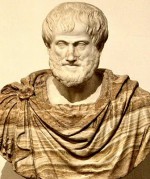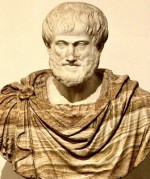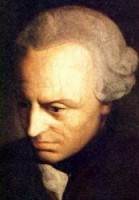
This section of Scholardarity is dedicated to the memory of my late grandfather, Joseph Zarri, who passed away in March 2012. He graduated Summa Cum Laude with a Bachelor’s in Philosophy from the University of San Francisco in 1949. He will continue to be deeply missed, but it is my hope that through these pages he will also continue to enlighten and inspire others, only now it will be through his writings. I’ve posted this section’s first few entries below. The will be much more to come.
— Jason Zarri
Aristotle’s Definition of Citizen, State, Constitution, & Government
(Also available as a PDF)
In order to answer the question, “What is a State?” Aristotle begins by asking, “Who is the citizen, and what is the meaning of the term?” This he does because the state is a composite whole made up of many parts—the citizens who compose it. The citizen whom Aristotle is seeking to define is the citizen in the strictest sense, against whom no exception can be made, so that “a citizen is not a citizen because he lives in a certain place; nor is he a citizen who has no legal right except that of suing and being sued; for this right may be enjoyed under the provisions of a treaty.”This latter class are citizens only in a qualified sense, in the same way that children and old men are said to be citizens imperfectly, and not simply. In practice a citizen is defined as one who is born of parents who are citizens, but this is not a satisfactory definition because it cannot apply to the first inhabitants or founders of a state, nor to those who have had the franchise conferred on them by the state. A citizen in the proper sense of the term, then, is one who shares in the administration of justice, and in offices.
Aristotle’s Theory of the Origin of the State (Also available as a PDF)
Aristotle opens his “Politics” by stating the obvious fact that the state is a community of some kind. (By state Aristotle has in mind the Greek City-State). Like all other communities, the state must exist for an end, and the end of the state is the highest good of man, which for Aristotle means the life of virtue and contemplation. “But, if all communities aim at some good, the state or political community, which is the highest of all, and which embraces all the rest, aims at the good in a greater degree than any other, and at the highest good.”
Kant began his philosophical career by subscribing whole-heartedly to Cartesian rationalism as it had come down to him in the works of Leibnitz and Wolff. Kant was broken from his dogmatic slumber by reading David Hume in a German translation in 1756. This statement requires some explanation. Kant defines dogmatism as “the positive or dogmatic procedure of reason without previous criticism of its own faculty.” (What do we know, instead of how do we know.) Or as “the groundless assumption that we can make our way in metaphysics without criticism.” In other words, a system which is produced in the direct effort to understand and interpret the world—the effort of a mind which is as yet troubled by no scruple as to its own competence, or as to the efficiency of the methods and principles it uses.
An Overview of the History of Philosophy: Part 1 (Also Available as a PDF)
Thales of Miletus
Philosophy was a creation of the Greeks and more particularly of the Ionian race. Thales, born in Miletus in Asia Minor about 640 B.C., was the first of philosophers.
No writing of his has come down to us; we have no primary sources, only secondary ones, mainly Aristotle’s “Metaphysics”, “De Anima”, and “De Coelo”. Also mentioned in Theophrastus’ book “On the Physical Opinions” about 400 B.C. A fragment of his is found in Aristotle’s “Metaphysics”.
Subscribe to Scholardarity
Submit your writing to Scholardarity
PARENT PAGE: Philosophy Notes








